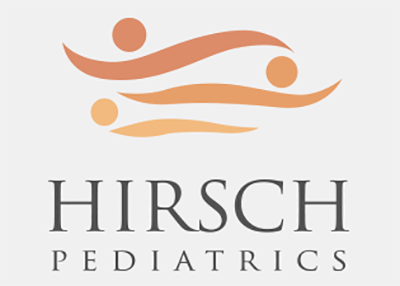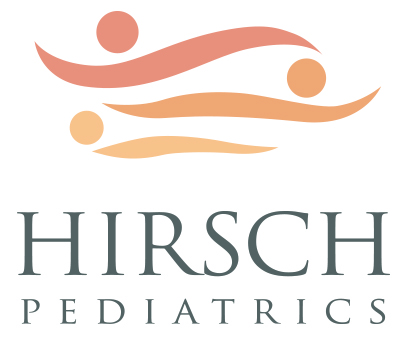Please Note: These guidelines are only for children who are fully vaccinated with no chronic medical illnesses.
These guidelines provide general guidance and should not be used as a substitute for the individual advice provided over the phone or at an appointment. If you have any significant or ongoing concerns, please call the office. Please contact Hirsch Pediatrics or go to the ER if your child is under 2 months old and has a fever (rectal temperature of 100.4 Fahrenheit or 38 Celsius).
These guidelines are written for patients of Hirsch Pediatrics and may not be copied or used without the written permission of Dr. Hirsch.
Head Injury for Infant and Toddler
My child hit their head. Do I need an appointment or visit to urgent care/ER?
- Though potential head injuries are certainly scary, most head injuries for infants and toddlers are fortunately considered low-risk and can be observed at home without an office or urgent care/ER visit. Note: Falls from a bed/sofa/changing table to a carpeted or soft floor are usually considered low-risk and can be monitored at home if your child recovers quickly. Specifically, if your child calms down within 15-30 minutes of the event and shows no other concerning high-risk symptoms as noted below, ** then you can monitor them at home.
- We recommend going to the ER for evaluation of high-risk injuries which have an elevated risk of serious brain trauma. High-risk potential injuries include:
- Falls higher than a bed/sofa on to a hard floor such as from a countertop on to a non-carpeted floor.
- Falling out of a caregiver’s arms onto a hard surface if there is no slowing down during the fall.
- Falling out of a second story window or higher.
- Very serious car accidents such as when the car is totaled or has a roll over. Fortunately, infants that are secured in a rear facing car seat have extremely low risk of head injury in low-risk car accidents.
- ** High-risk symptoms to watch out for several hours after the injury include persistent vomiting, worsening fussiness/irritability, or swelling that continues to get worse after 6-8 hours. If you notice any of these symptoms or your child experiences any loss of consciousness, please proceed directly to the urgent care/ER for an evaluation. https://hirschpediatrics.com/hirsch-pediatrics-after-hour-care/
My child has a bump or bruise on their head. What can I do to reduce the swelling?
- Apply a cool pack for 30-90 minutes as tolerated to reduce the swelling.
- If your infant/toddler is very fussy with the cool pack, then do the best you can and do not worry if you are not able to keep it on very long.
- Please let us know if the bump is getting bigger 6-8 hours.
My child had a low-risk head injury and now looks calm, but I am still worried. Do I need to keep my child awake or check on them overnight to monitor for unexpected symptoms?
- It is okay to keep a normal nap and sleep schedule after a low-risk head injury as defined above. Note: Sometimes following a head injury if the child had a strong emotional reaction, they may become sleepy and take a nap. That is okay as long as while they are sleeping, they look comfortable and maintain normal breathing and color.
Do I need to make an appointment at Hirsch Pediatrics after a low-risk fall?
- Though fortunately low-risk falls can be safely monitored at home, we are happy to see your child in the office anytime if you still have concerns or questions.
How can I prevent head injuries?
- Attention new parents: Please never leave your infant unattended on a bed, sofa, or changing table! Even infants who are not rolling or crawling will quickly wiggle off any surface and fall head-first. If you need to step away from your child, even for a moment, place your child in their crib or bassinet for safety.
- For infants older than 6 months, before they are crawling, please make sure you have gates at the top and bottom of all stairs. Do not rely upon other family members to keep a door closed, especially if you have older children at home or occasional friends and relatives visiting.
- Never use baby walkers where the infant sits inside and can move around themselves. Baby walkers can unexpectedly tip over and move fast leading to severe head injuries. If you receive a baby walker as a gift or hand me down, please throw it away and do not give it away.
Looking for something else? Click here to view all of Dr. Hirsch’s medical advice topics.

